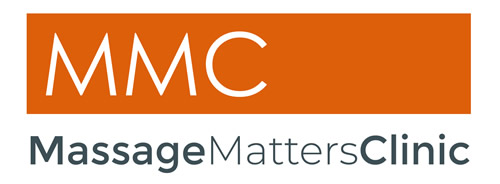What can stress do to your muscles?
A personal experience of stress, and some ways it affects the muscular system.
Published: May 10th, 2024 | By: Tom Newby | Read Time: 5 mins

In this article, I wanted to share my experiences of my rather stressful February this year, to highlight what I noticed. For most of the month, I was working Monday-Sunday, with no days off, frantically trying to manage the many over-subscriptions in my life. Looking back, it was the outcome of too many moments of saying “yes” to someone or something, when maybe I should have taken a breath and responded with a “no”. It may be a familiar story; perhaps it resonates with you? There has been a lot more attention in recent years to ‘oversubscription’ in life, to the value of listening to one’s own needs, and the value of saying ‘no’. However, this article isn’t about that topic, nor am I asking for pity from you (although it’s always welcome!). Instead, I wanted to focus on what I experienced as a result of my stint of stress.
The most notable symptom was the hum of pressure I felt across my teeth (of all places!), like a rigid wire was running around my jaw. Apparently, it had been on auto-pilot, clenching not just when I was asleep but even during my waking hours – almost all of the time. Oddly enough, I hadn’t felt stressed at all. This was more subtle; emotionally I felt pretty okay, if a bit overtired, but under the surface my body and mind had tensed up “just to get me through”. My hands were constantly under tension. I found the muscles of my face -not just my jaw- were tighter; my brow and the areas around my cheekbones and towards the back of my neck felt constricted, even the front of my neck was a little tighter. My abdomen was rigid, sadly not because of my core exercise routine! My breathing most certainly was not from my abdomen, unless I forced the issue. And, yes, I was finding that subtle, nagging tightness across my upper shoulders and neck as the two areas attempted to draw one-another closer.
There are between 24 and 30+ muscles* in the face, most of which almost never receive the admiration they deserve for the jobs they do. Amongst other duties, these muscles are the powerhouses of expression, broadcasting our many emotional states to the world. In the face, the musculature doesn’t attach from bone to bone as with the body. Instead, your many facial muscles attach directly to the skin via your fascial system, one key reason for the inordinate number of wrinkles on the face vs the body as we age (if it wasn’t for my pesky emotions I’d look so good!). Roughly 7% of our communication is verbal, 38% is thought to be tone of voice, with 55% considered to be nonverbal – body language, gestures, and facial expressions (what does this say about text-based communication I wonder?).
Many of us are familiar with our shoulders tightening as the pressure mounts. As I may have pointed out to you, the added complication of stagnant physical postures (e.g., sitting at a desk for 12 hours per day) is rarely a gift in these circumstances. The proclivity of the shoulders to move upwards and forwards during prologued desk work mimics the stress posture, adding more tension to the same muscles. The two working in unison is, frankly, unhelpful. No wonder our shoulders and necks feel so tight.
Down at your hips, your Iliopsoas, which I like to describe as the most important muscle group you’ve never heard of, attaches at your lumbar (lower) spine, coming forward and downwards into your groin. It’s your most powerful hip flexor (think knee towards abdomen). If this gets tight, general movements at the hip can struggle. If you sit for long periods, this can neurologically “program” the muscle to shorten, restricting other movements and impacting your lower back. Perhaps more interestingly, there’s now research that Iliopsoas has a connection with our stress response, tightening up when we’re experiencing mental strain. Again, imagine a world (e.g. stressful office work!) in which both sitting and stress converge.
Around 90% of all my treatments are for injuries, postural issues, athletic performance, or general ‘mechanical’ maintenance. Perhaps 70% of MMC’s overall treatments are the same. The value of a slightly gentler style of treatment can often be missed. However, I think a thorough, precise face, neck, and shoulder massage, releasing the muscles of the face, opening up and stretching the neck, resetting the muscles and fascia of the scalp (many of which are interconnected), is one of the most powerful ways of alleviating the symptoms above, at least in the short term. Perhaps the greatest thing here is just how nice it can feel to receive.
If you’d like a treatment of this type, please call us on the usual number or specify it in the notes of your online booking.
*Depending upon how they are counted
Opening Hours
Mon: 1.00pm - 9.30pm
Tue: 7.00am - 6.00pm
Wed: 11.00am - 4.00pm
Thurs: 7.00am - 6.00pm
Fri: 8.30am - 9.30pm
Sat: 7.00am - 9.30pm
Sun: Closed
All appointments booked in advance, give us a call if you need to.
Contact
11 Friday Court (1st Floor)
Thame, Oxfordshire
OX9 3GA
E: hello@massagematters.clinic
L: 01844 212022
M: 07771 896398
We pick up the phone 8am-8pm Mon-Sun
Client Feedback
"A very professional set-up, lovely treatment rooms and plenty of parking."

